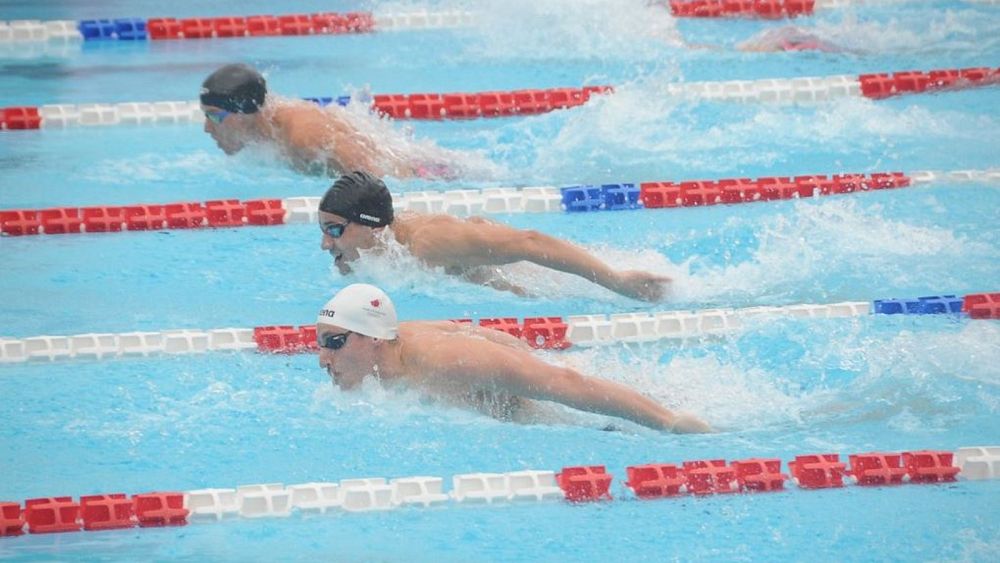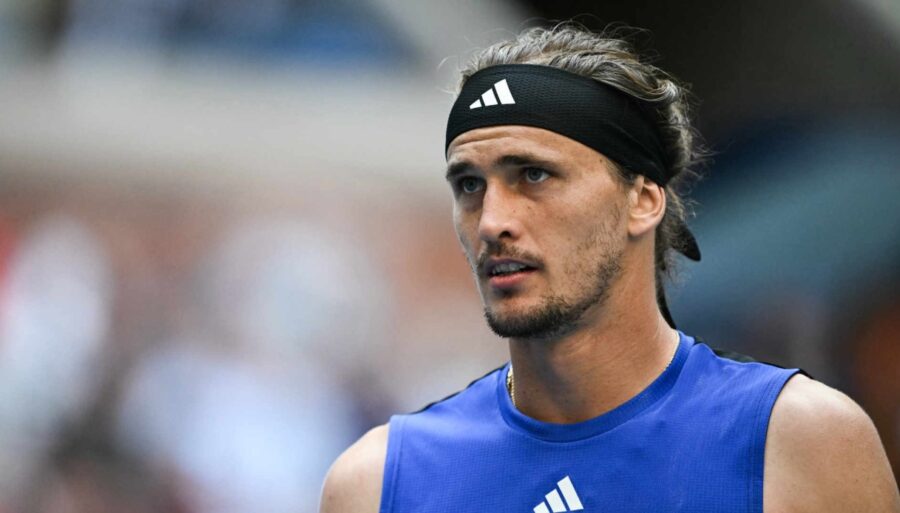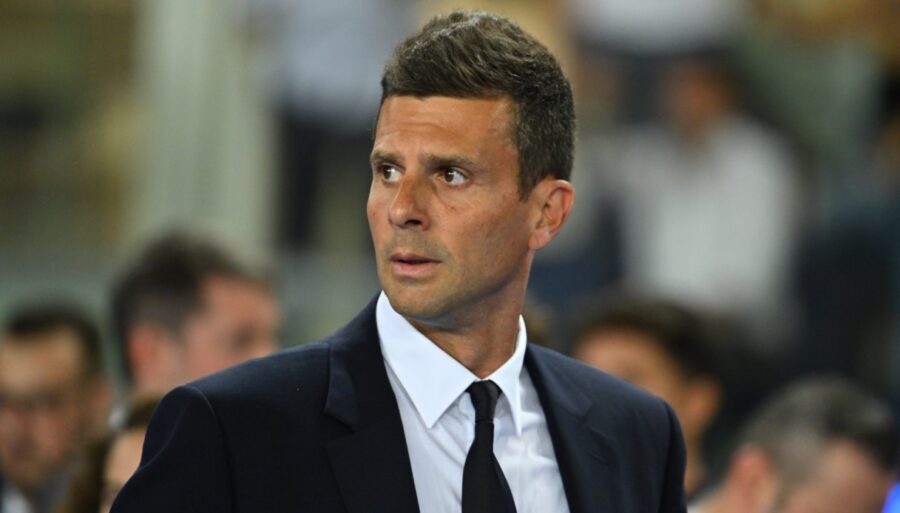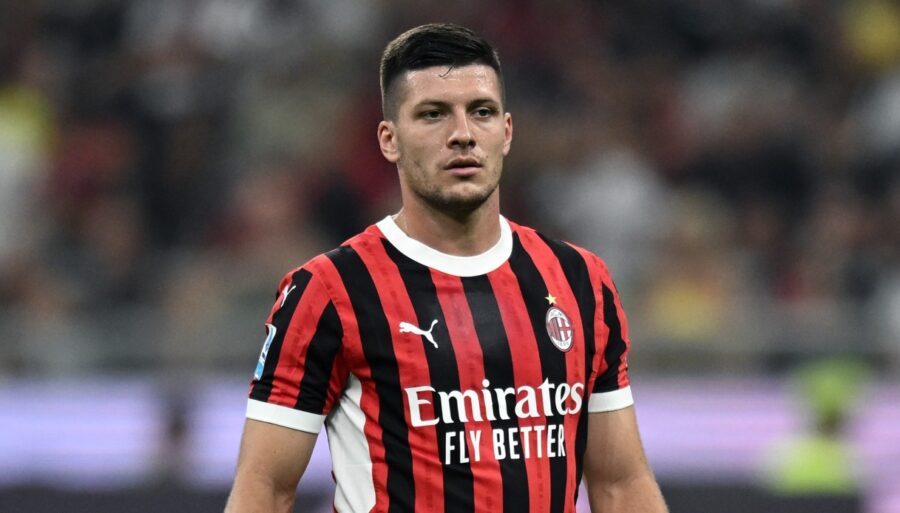Sports
Faster, higher, smaller: Europe’s ‘tiny Olympics’ you’ve probably never heard of before

For Magaly Meynadier, next month will not only be a shot at redemption following a long recovery, but a “special” chance to don the national jersey and represent her nation.
Meynadier, now 31 and an integral part of the Luxembourg women’s basketball squad, still remembers the first time she paraded with fellow athletes while thousands of fans cheered.
It was at the Games of Small States of Europe (GSSE), a biennial sporting event featuring nine small European sovereign states.
“When it [GSSE] happened in Luxembourg, we were in the big football stadium and we all had to go around and people were cheering for us,” Meynadier tells Euronews, reminiscing about her first games in 2013 as a part of the gold medal-winning side.
Representing one’s nation is a great achievement, even more so when it comes to countries with smaller populations, which can be significantly disadvantaged in major global tournaments.
That is the case with Malta, Iceland, Liechtenstein, San Marino, Montenegro, Cyprus, Andorra, Monaco, and Meynadier’s Luxembourg – the nine nations that will show up in Malta in May to compete in the 19th GSSE.
‘The Tiny Olympics’
Spots at the Olympics come at a premium and the competition to win is fierce. Only a few countries manage to qualify with full squads, and can end up dominating the medals tally.
For nations with a limited talent pool to work with, qualifying for the sporting gala is tough, and reaching the podium even more of a long shot.
And that’s where the GSSE comes in.
Founded by eight independent Olympic committees in 1984, the rules to participate in the games are simple – an Olympic committee has to be independent, a member of the European Olympic Committee and should represent nations with populations of less than a million.
Montenegro joined in 2009 with the Olympic committees of the Vatican City and Faroe Island are actively seeking to tick the boxes to join the mix.
In addition to having a handful of Olympic sports, the games also follow similar opening ceremony rituals to their ‘full-sized’ Olympic games: with a Parade of Nations, artistic displays, and speeches.
But that is not the only reason why competing athletes prefer to term it the “tiny Olympics.”
“Throughout the entire process of preparing, racing and being there, the Olympic spirit shines bright and that’s what makes it special,” Icelandic swimmer Anton McKee tells Euronews.
Mckee, 29, has competed in multiple GSSEs over the years and won 10 medals in the 2015 games held in Iceland.
“The most special thing is that for many athletes from countries that are underrepresented, it’s their time to shine,” he adds.
The platform to step-up
Despite the affable nature of the games, the GSSE is becoming more competitive.
“Now, most countries send athletes to win medals rather than just to participate. In the beginning, it was different. But now it is definitely to compete for medals,” Julian Pace Bonello, President of the Maltese Olympic Committee, tells Euronews.
By providing a platform for athletes to compete, the GSSE plays a part in stepping up the level of the competing countries. San Marino’s heroics at the Tokyo Olympics, winning two silvers and a bronze to become the smallest country by population to win an Olympic medal, is a testament to that.
“We never say that the GSSE is the end of the road. We say it’s the stepping stone to being able to compete at a higher level,” Bonello adds.
As an athlete, McKee agrees that the GSSE helped him in competing in several international championships, including the Summer Olympics: “GSSE was one of the breakout meets for me as an athlete. Being able to get the medals by going up against swimmers that I thought I couldn’t beat was proving to myself that I was one of the best swimmers of that calibre.”
The sense of competitiveness also reflects in the medal tally. McKee’s Iceland has won the most gold medals, dominating aquatic and athletic sports.
More than just the games
As the Maltese capital of Valletta prepares to host its third GSSE, the organising committee is keen on tapping into the positive impacts that sporting events are capable of bringing.
Facilities that were made for the 2003 games in Malta bolstered the country’s sporting capabilities and helped to spark interest among the locals.
“When it’s your turn to host the games, you have the government come on board. You’ll get additional funding, you’ll get facilities upgraded, you get new facilities which are not only for the games, they will be used after the games are over,” MOC president Bonello explains.
The biennial host cities also take the opportunity to exhibit the local culture and national identities. The mascot for the 2023 games, Lampuka, is derived from Puka, a dorado fish native to the waters of Malta. The 2019 games in Montenegro had Smokvić, the energetic fig as the mascot with the slogan “How Big We Are”.
Similarly, there are positives for athletes too.
The spotlight on the Luxembourger women’s basketball team significantly increased following the 2013 triumphant home games. For a team with many part-time athletes, Magaly Meynadier says the interest has helped the team compete and increased the participation of women in different sports.
“After what we did in Luxembourg, we could see that the people were coming to actually watch us when we were playing at home. It is not the only gold that we’ve won, but it was very nice to see the growing interest in the women’s basketball team,” she says.
‘You play for the team’
Francesco Sansovini vividly remembers the moments he became a GSSE gold medalist in 2019.
Sansovini, then 19, ran the final leg of the men’s 4×100 metre relay, with a strained hamstring threatening both his performance and confidence. The Sammarinese sprinted despite the stinging pain, with the thought of bringing the medal home.
He ended up crossing the finishing line first, and the gold medal hangs in his bedroom.
“Every morning, I see the gold medal and aspire to do better in Malta,” he says.
Since countries show up with full squads at the GSSE, single athletes like Sansovini also compete in relays – a feat made impossible due to quotas in other major tournaments.
Like San Marino, GSSE Iceland also gets to send full rosters, and that is what makes the games particularly special for Anton McKee.
“In GSSE, the relays are one of the most exciting aspects – racing with your teammates and racing against other countries. There’s something special about it. You forget your own ego and aspirations. You just want to win a race as fast as you can for your team and your country,” he says exuberantly.
Sports
US Open, Alexander Zverev also out: Jannik Sinner thanks.

All-U.S. semifinal at US Open
Another big man exits the tournament. After the various Alcaraz and Djokovic, Zverev è is also no longer in the running at the US Open. The German è was beaten by Fritz in four sets (7-6 (2) 3-6 6-4 7-6), at the end of a match that è lasted almost three and a half hours. A defeat that leaves a lot of bitterness in Zverev’s mouth. The German was aiming to reach at least the final.
A feat for the American who, dragged by the home crowd, won the first semifinal of a Slam event. After winning the first set on tie-break, Fritz suffered the return of Zverev, who took home the second partial with a peremptory 6-3. The momentum seemed to be in the German’s hands but Fritz escaped on 3-0. Zverev recovers but gives up at the più beautiful. Spectacular fourth set. Zverev tries everything but, once again, the tie-break costs him dearly. He loses it 7-3 and says goodbye to the tournament.
Dreams big for Fritz who, in the semifinals, will face the other American Tiafoe who, in the quarterfinals, wins the match with Dimitrov, forced to retire in the fourth set due to a physical problem: 6-3, 6-7, 6-3, 4-1 the partials in favor of Tiafoe.
The United States dreams, after 21 years (Roddick, 2003), of an American winning the U.S. Open. In the meantime, it enjoys Sinner who, thanks to Zverev è’s knockout; increasingly serene in his comfortable position as world No. 1.
Sports
Thiago Motta dusts off Arthur for Champions.

Juventus, the list
Juventus has also released the Uefa list for the 2024/25 Champions League and specifically there are 28 players chosen by Thiago Motta: 22 on List A and 6 on List B.
The surprise name è that of Arthur, considered until yesterday out of the Bianconeri project, which remains for all intents and purposes Filip Kostic, cut and looking for accommodation abroad.
The complete list:
LIST A
1 PERIN
3 BREMER
4 GATTI
5 LOCATELLI
6 DANILO
7 CONCEICAO
8 KOOPMEINERS
9 VLAHOVIC
11 NICO GONZALEZ
14 MILIK
15 KALULU
16 MCKENNIE
17 ADZIC
18 ARTHUR
19 THURAM
21 BEANS
22 WEAH
23 PINSOGLIO
26 DOUGLAS LUIZ
27 CAMBIASO
29 DI GREGORIO
32 CABAL
LIST B
10 YILDIZ
36 ANGHELE’
37 SAVONA
38 DAFFARA
40 ROUHI
51 MBANGULA
Sports
Milan, no Champions League for Luka Jovic

Milan, the list
No Champions for Luka Jovic, who is not part of the list handed to Uefa regarding the players who can be fielded in the Champions League group stage.
In fact, Fonseca chose the men for the eight scheduled matches with Real Madrid, Liverpool, Brugge, Bayer Leverkusen, Red Star, Dinamo Zagreb, Girona and Slovan Bratislava, leaving the Serbian out.
LIST A
2 Davide Calabria
4 Ismael Bennacer
7 Alvaro Morata
8 Rubén Loftus-Cheek
10 Rafael Leao
11 Christian Pulisic
14 Tijjani Reijnders
16 Mike Maignan
17 Noah Okafor
19 Theo Hernandez
21 Samuel Chukwueze
22 Emerson Royal
23 Fikayo Tomori
24 Alessandro Florenzi
28 Malick Thiaw
29 Youssouf Fofana
31 Strahinja Pavlovic
42 Filippo Terracciano
46 Matteo Gabbia
57 Marco Sportiello
80 Yunus Musah
90 Tammy Abraham
LIST B
Adam Bakoune, Davide Bartesaghi, Andrea Bozzolan, Francesco Camarda, Andrei Coubis, Hugo Cuenca, Victor Eletu, Mattia Liberali, Vittorio Magni, Mattia Malaspina, Lapo Nava, Dorian Paloschi, Diego Sia, Dariusz Stalmach, Lorenzo Torriani, Chaka Traoré, Kevin Zeroli.
-

 EU & the World5 days ago
EU & the World5 days ago‘HSM’ Alum Bart Johnson Defends Sister-In-Law Blake Lively Amid Online Backlash
-

 Sports2 days ago
Sports2 days agoMercedes celebrates Monza: “Goosebumps.”
-

 Politics6 days ago
Politics6 days agoEU Intensifies Pressure: Six-Month Extension of Russia Sanctions
-

 Health & Society5 days ago
Health & Society5 days ago7 Superfoods That Will Boost Your Fitness Results
-

 Sports5 days ago
Sports5 days agoFiorentina miracle: nine qualify for the Conference League rounds
-
Travel4 days ago
Venice 2024 review: ‘Babygirl’ – Nicole Kidman shines in sex-positive BDSM drama
-

 Sports1 day ago
Sports1 day agoCharles Leclerc at Monza outperformed even Michael Schumacher.
-

 Health & Society4 days ago
Health & Society4 days agoMarathon of documentaries on Drug Prevention for International Day Against Drugs









